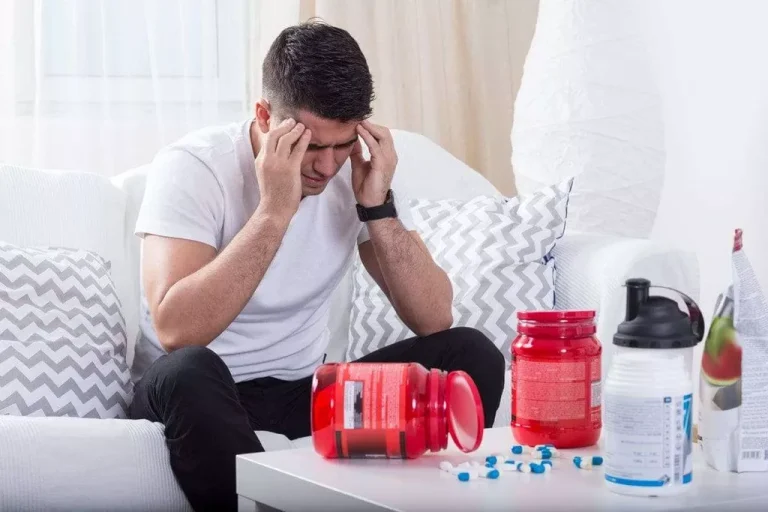
So long as it is made from water, grains, yeast, and hops, it still counts as a beer. We’ve also looked at what can cause dehydration, and how alcohol can cause/exacerbate it. What we do know is that there have been many times in history where people drank a lot more beer than would be considered normal nowadays.

Alcoholic Hepatitis: Spot The Signs, Reclaim Your Health

Alcohol inhibits the release of vasopressin, an anti-diuretic hormone that is released when our concentration of electrolytes rises above a certain level. Without this hormone, the kidneys cannot reabsorb extra fluid, so you lose more fluid. Alcohol dehydrates us through its diuretic effect and contributes to fluid loss through sweating or vomiting. Extreme dehydration for a long period of time can be extremely damaging to our body and can even be fatal. Be sure to stay hydrated throughout the day, and if we’re going to be drinking alcohol, be sure to include water whenever possible. Consuming alcohol while dehydrated will just make dehydration worse.
- More importantly though, excessive consumption of alcohol can dehydrate the body because of the diuretic effects of the alcohol itself.
- After all, beer is about 95 per cent water and only five per cent alcohol.
- If you’re consuming more alcohol during the holiday season, you’re not alone.
- Let’s go through some reasons why dehydration from alcohol may impact different people differently.
The Science Behind Beer and Dehydration
Alcohol consumption can interfere with these processes, leading to impaired muscle recovery and growth. Over time, this can lead to malnutrition, affecting overall health, immune function, and the body’s ability to repair itself. The first step involves ADH, which metabolizes the ethanol into acetaldehyde, a highly reactive and toxic compound that can contribute to the symptoms of a hangover. This is a short-lived state, however, as acetaldehyde is rapidly converted into acetate, a relatively harmless substance, by the action of ALDH. Acetate is further metabolized into carbon dioxide and water, which are ultimately excreted from the body.
Why does drinking alcohol cause dehydration?
- The term ’empty calories’ refers to foods or drinks that provide a significant amount of energy but little to no nutritional value.
- To reduce the risk of dehydration when drinking beer, it is important to drink water alongside alcoholic beverages.
- Yes, you can counteract dehydration by drinking water alongside your beer.
- According to this article from the University of Maryland, beer would be brewed as normal.
- The diuretic effect of alcohol inhibits the production of the antidiuretic hormone “vasopressin,” which is crucial for water retention.
This means that you may be losing more fluids than you are taking in, resulting in dehydration. Additionally, alcohol suppresses the production of a hormone called vasopressin or antidiuretic hormone (ADH), which normally helps the body retain water. With reduced levels of ADH, the kidneys release more water, further contributing to dehydration. Therefore, it is important to drink in moderation and to stay hydrated when consuming alcohol.
As the liver breaks down the alcohol, it is converted into a substance called acetaldehyde, which can be toxic in high doses. Our liver quickly works to break down acetaldehyde into acetate. According to science, about 90% of alcohol is eliminated by our liver, but 2-5% of alcohol leaves our body through urine, sweat, or breath. And since alcohol increases our heart rate, it makes us sweat more, which accelerates how fast we become dehydrated.
The effects of alcohol on sleep and recovery

You begin to urinate more often, which can leave you will beer dehydrate you feeling thirstier. The health benefits of beer are huge, provided you drink it in moderation. The hydration and dehydration level depends on the ABV of the beer.
Does Weed Make You Dehydrated?
ADH stands for antidiuretic hormone (also known as vasopressin). When the human body senses it is getting dehydrated, the pituitary gland produces ADH to reduce urination. The risk of dehydration from drinking on an empty stomach is further increased if vomiting occurs, as vomiting can also lead to dehydration. Drinking on an empty stomach can increase the risk of vomiting due to the faster rate of alcohol absorption.

This may give your liver more time to metabolize it, but that can also be accomplished by simply drinking more slowly. Drinking alcohol can dehydrate you, and it’s one of the main reasons you can get a hangover. This is because alcohol is a diuretic, which is a substance that induces diuresis or additional urine output.
- Blocking this antidiuretic hormone causes fluids to pass directly through the kidneys to our bladder, which is why we have to pee way more while drinking alcohol.
- Consuming alcohol while dehydrated will just make dehydration worse.
- The amount of water needed each day varies from person to person, depending on age, sex, pregnancy status, activity levels, and breastfeeding status.
- Fresh fruits and vegetables, as well as non-alcoholic fluids, contribute to about 20% of a person’s daily water intake.
- Let’s review some things we can do before drinking alcohol to prevent severe dehydration.
Alcohol inhibits the release of an antidiuretic hormone called vasopressin or arginine vasopressin (AVP), which usually helps the body retain water. When this hormone’s levels drop due to alcohol consumption, the kidneys excrete more water than usual. Beer is a popular drink worldwide, but it is important to remember that it is a diuretic.

Understanding Hydration
6 In other words, subjects peed less relative to their fluid intake two hours after consuming these drinks compared to water. In summary, while an occasional beer or alcoholic drink might not derail a healthy diet, regular or heavy consumption heroin addiction can interfere with weight management and overall nutritional health. Additionally, alcohol can interfere with the body’s balance of certain hormones that control metabolism, including those involved in regulating blood sugar levels. This can, over time, increase the risk of weight gain and obesity. Our body requires water and fluids to maintain normal functions.
